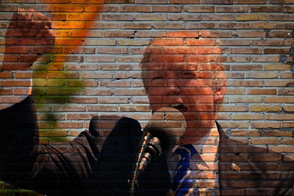
On July 9th, 2019, the U.S. Court of Appeals for the Second Circuit released its opinion in Knight First Amendment Institute, et al. v. Donald J. Trump, et. al., Slip Opinion No. 18-1691, holding that President Trump engaged in “unconstitutional viewpoint discrimination” when he blocked users from interacting with his personal Twitter account. They concluded “that the First Amendment does not permit a public official who utilizes a social media account for all manner of official purposes to exclude persons from an otherwise-open online dialogue because they expressed views with which the official disagrees.”
President Trump’s Twitter account (@realDonaldTrump, hereafter the “Account”) has over 60 million followers and has been in use since March 2009, over seven years before he won the presidency. As observed by the Court and stipulated by the parties, “[n]o one disputes that before he became President the Account was a purely private one or that once he leaves office the Account will presumably revert to its private status.” By the President’s own admission, he has used his Account since his inauguration in January 2017 as “a channel for communicating and interacting with the public about his administration.” Although his Twitter feed is public and anyone can view them, he has the ability to block a user from his account or viewing his tweets when logged into their own Twitter account.
For all intents and purposes, the President’s private Twitter account “bears all the trappings of an official, state-run account.” He uses it to post pictures of himself in the performance of official duties (e.g. signing laws and meeting foreign dignitaries) and also as a forum to announce, promote and defend his Administration’s policies. The President and members of his administration have stated many times that tweets should be considered “official statements by the President of the United States” and are, in fact, used as a primary vehicle to conduct White House business.
Three individual Twitter users (joined by the Knight Institute) filed suit in the U.S. District Court after they were blocked from accessing the Account by the President. They allege, and the President concedes, that each of them were blocked after posting replies where they criticized Trump and his policies. The individual Plaintiffs alleges that being blocked caused the “inability to view, reply or retweet the President’s tweet limits their ability to participate with other members of the public in the comment threads that appear below the President’s tweets.” While there are ways to get around being blocked to view the full material (e.g. open a new account or contact a mutual follower for retweets), the Plaintiffs allege that this is simply too burdensome.
The U.S. District Court granted summary disposition in favor of the Plaintiffs, holding that “the blocking of the individual plaintiffs from the [Account] because of their expressed political views violates the First Amendment.” Since the President presents his Twitter account as “a presidential account as opposed to a personal account and… uses the account to take actions that can be taken only by the President as President”, then the Court concluded that the President has created “a public forum in the interactive space of the Account.” By blocking the Plaintiffs due to their expressed political views, the government has engaged in viewpoint discrimination and violated the Plaintiff’s First Amendment rights.
The Second Circuit Court of Appeals affirmed the decision, agreeing that the President’s Twitter account is not independent of the presidency. They found that “once the President has chosen a platform and opened up its interactive space to millions of users and participants, he may not selectively exclude those whose views he disagrees with.” It doesn’t matter if the President holds out to the world that these are his private opinions and it doesn’t matter that the Twitter account is not technically owned by the United States government. “Temporary control by the government can still be control for First Amendment purposes.”
More importantly, the President makes extensive and frequent use of this Account to further his governance and his executive outreach. He makes announcements about high-level staff changes, communicates new national policies, and engages directly with foreign leaders on this forum. Even the “official” White House twitter account, which is maintained by the U.S. government, directs users to follow @realDonaldTrump to stay up-to-date on the President’s activities. The National Archives and Records Administration decreed that the President’s tweets “are official records that must be preserved under the Presidential Records Act.” The factors pointing to the “public, non-private nature of the Account and its interactive features are overwhelming.”
The Court of Appeals concluded that “[b]ecause the President, as we have seen, acts in an official capacity when he tweets”, then “he acts in the same capacity when he blocks those who disagree with him.” When he blocks a user, he is excluding him or her “from government-controlled property.” Once established that President Trump is a government actor with respect to his account and that the account is a public forum for official communication to the general public, then the action of blocking users on the basis of disagreement is viewpoint discrimination in violation of the First Amendment.
The immediate effect of this appellate decision is that the social media accounts of other government figures soon came under attack by blocked users. For example, U.S. Rep. Alexandria Ocasio-Cortez was sued in U.S. District Court hours after the decision was released for blocking users from accessing her own Twitter account. Given the current political climate, this opinion may open the floodgates for plaintiffs seeking declaratory judgment against hundreds of senators and representatives for their conduct on social media. Even worse, social media accounts thought to be private may be considered a “public forum” if that government official posted any messages relating to their public service. Time will tell if the courts will continue to develop bright-line standards to put government officials on notice when their private social media accounts cross the line and amount to a constitutional violation.





